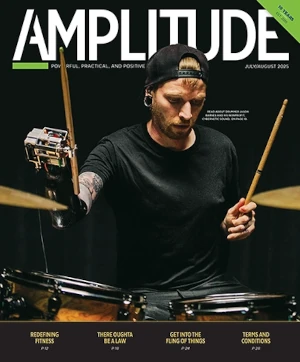Military veterans return to the United States with multiple types of trauma and suffer from one of the highest rates of chronic pain of any population in the nation. A major challenge for healthcare providers is how to help them alleviate pain that will last a lifetime. Now, a new study suggests veterans may be empowered to help themselves with the practice of meditation.
A small pilot study conducted at the Washington DC Veterans Affairs Medical Center (DC-VAMC) reveals that veterans who practiced meditation reported a 20 percent reduction in pain intensity and pain interference (how pain interferes with everyday aspects of life, such as sleep, mood, and activity level). The reductions were consistent across several methods by which doctors commonly measure pain in patients.
“Meditation allows a person to accept pain and to respond to pain with less stress and emotional reactivity. Our theory is that this process increases coping skills, which in turn can help veterans to self-manage their chronic pain,” said Thomas Nassif, PhD, a professorial lecturer in American University’s (AU’s) Department of Health Studies, researcher at the DC-VAMC, and lead author of the new study published in Military Behavioral Health.
Pain is a significant health issue among the approximately 2.6 million service members who have served in Operation Enduring Freedom in Afghanistan and Operation Iraqi Freedom in Iraq since these conflicts began in 2001, according to the Veterans Health Administration (VHA). Musculoskeletal pain conditions are the most frequently diagnosed medical issue, exceeding any other medical and psychological concern. Chronic pain is also found in most combat veterans who sustained a traumatic brain injury (TBI).
The form of mindfulness meditation administered in the study, Integrative Restoration Yoga Nidra, or iRest, is used at VHA medical centers and active-duty military facilities nationwide. The army surgeon general’s Pain Management Task Force has cited iRest as a tier I intervention for managing pain in military and veteran populations.
The pilot study consisted of four male veterans who received iRest meditation treatment and five who did not. All study participants served in combat and returned to the U.S. with chronic pain and moderate TBI. The study participants attended meditation sessions twice weekly at the DC-VAMC and were also given iRest recordings to engage in self-practice. By the end of eight weeks, the study participants had acquired useful mindfulness skills that empowered them to use meditation as a tool to help manage their pain, Nassif said.
“In many cases, primary care physicians are the ones expected to help individuals overcome their chronic pain,” Nassif said. “One of the most commonly used tools we have in our toolbox is opioids. Veterans in this study, and many who come to meditation sessions, find that opioid medication is a short-term solution. Meditation could be a useful tool to help veterans manage their pain over the long term.”
The study calls on healthcare providers to promote self-management in patients by disseminating strategies and techniques to help patients prevent, cope with, and reduce pain, and it concludes that iRest represents one promising self-management approach. More research should be conducted, Nassif said, and future studies should include quantitative measures and a greater number of participants.
This article was adapted from information provided by AU.



